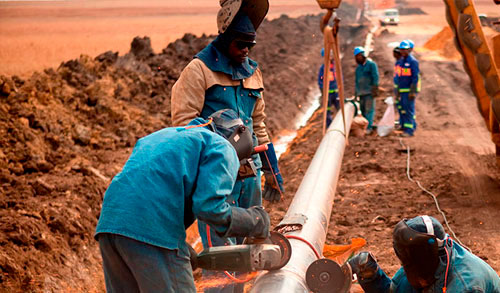27 Jun Implementing and Operating a Modern Pipeline SCADA System in a Developing Country

Implementing and operating a modern pipeline SCADA system in a developing country presents many unique opportunities and challenges.
One of the unique advantages a vendor/integrator might realize when implementing a SCADA system in a developing country is that these ventures are often “greenfield” projects, with all new equipment and software, as well as instrumentation and other field components. In the majority of cases, there is likely no need to consider backward compatibility with existing equipment or software, which reduces risk and makes for a clean and consistent implementation.
The unique challenges, on the other hand, fall into two (2) primary categories. First, is the initial implementation, and second, is the continued successful operation of the system.
Primary challenges of implementing a SCADA system in a developing country:
-
-
- Lack of local staff with adequate education, training and skills;
- Lack of infrastructure to provide reliable electric power and adequate reliable data communication capabilities;
- Difficulty importing staff and equipment to implement and maintain the system;
- Language and cultural differences; and
- Time—when working in developing countries, everything requires more time than in industrialized areas. Typically due to impacts of local customs, holidays and other unknown delay- causing factors, the inevitability of these items should be accounted for in the vendor/integrator project planning.
-
Solutions to mitigating challenges of implementing a SCADA system in a developing country:
Challenge (1): It is critical that local staff be trained to handle the day-to-day duties involved in running and maintaining the system. Furthermore, a training process should be put in place to ensure additional local staff can be adequately trained as needed.
Challenges (2) and (5): Must be addressed during the planning and scoping portion of the project to ensure these aspects are specifically addressed in the project design and execution plan.
Challenge (3): May be handled by the pipeline company, or by working with the local government early on to make certain that staff and equipment can be delivered to site in a timely manner.
Challenge (4): To prevent unnecessary friction and conflicts, the vendor/integrator staff who will interact directly with the people in the developing country should be educated/trained in local social and business mores. Finding and recruiting local resources to assist as necessary is also highly recommended. In particular, having a local individual serving as a designated PRO (Public Relations Officer) can be a very valuable project asset, saving countless hours and frustrations over the course of the project
Ensuring continued success of system operations:
All too often, the continued operation of the system is not adequately considered and planned, which results in poor performance, or sometimes, complete system failure. It is far too expensive and difficult to handle system operations remotely or maintain expatriate staff on site. Therefore, the vendor/integrator must understand the short sightedness of merely implementing and handing over a pipeline SCADA system to an ill-prepared staff at the end-user’s site. Again, initial and ongoing training will ensure local teams are able to handle the day-to-day duties of running and maintaining operational systems in the vendor/integrators absence.
To avoid system failure, poor performance and high expenses, it is critical to address the challenges that come with the implementation and continued operation of a SCADA system in a developing country. While this process may not be easy, it is manageable if all parties recognize and adequately address the inherent obstacles presented. To learn more, click here to consult an expert at UTSI.


